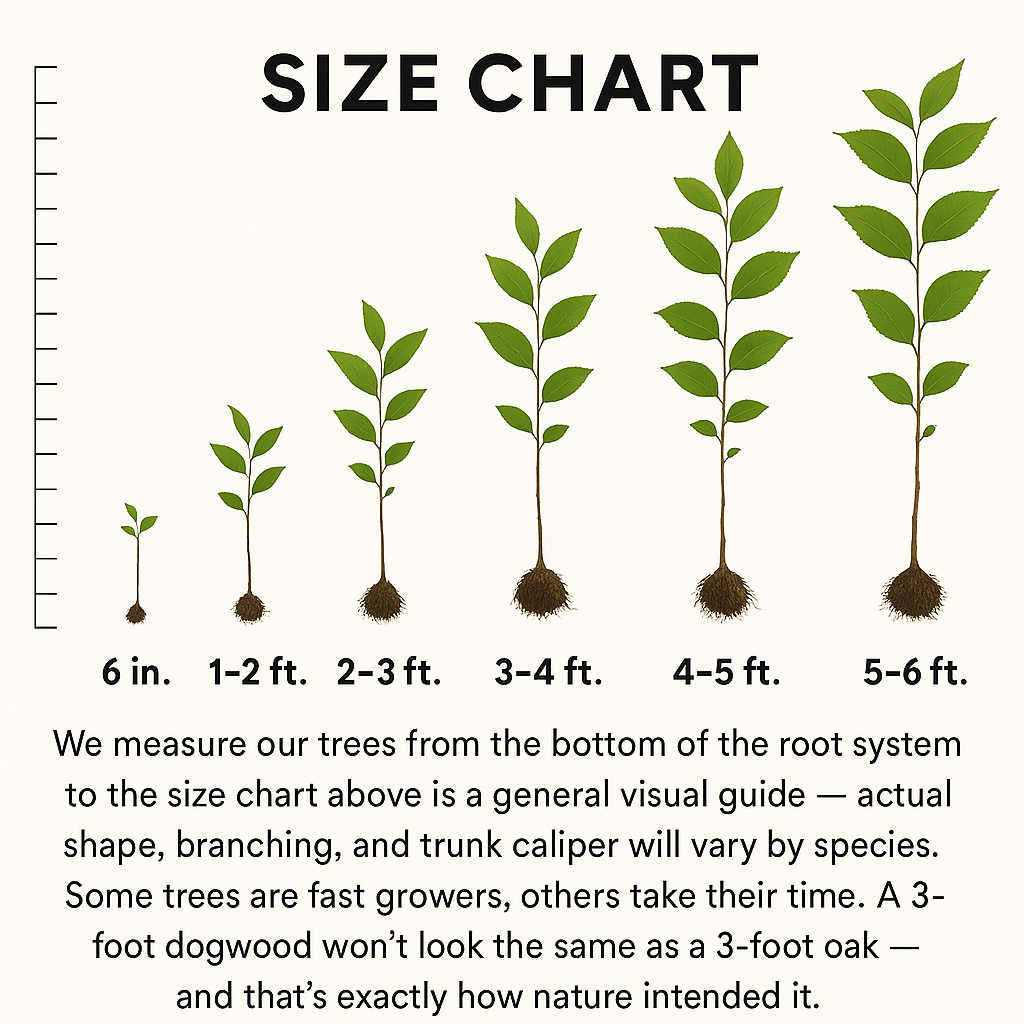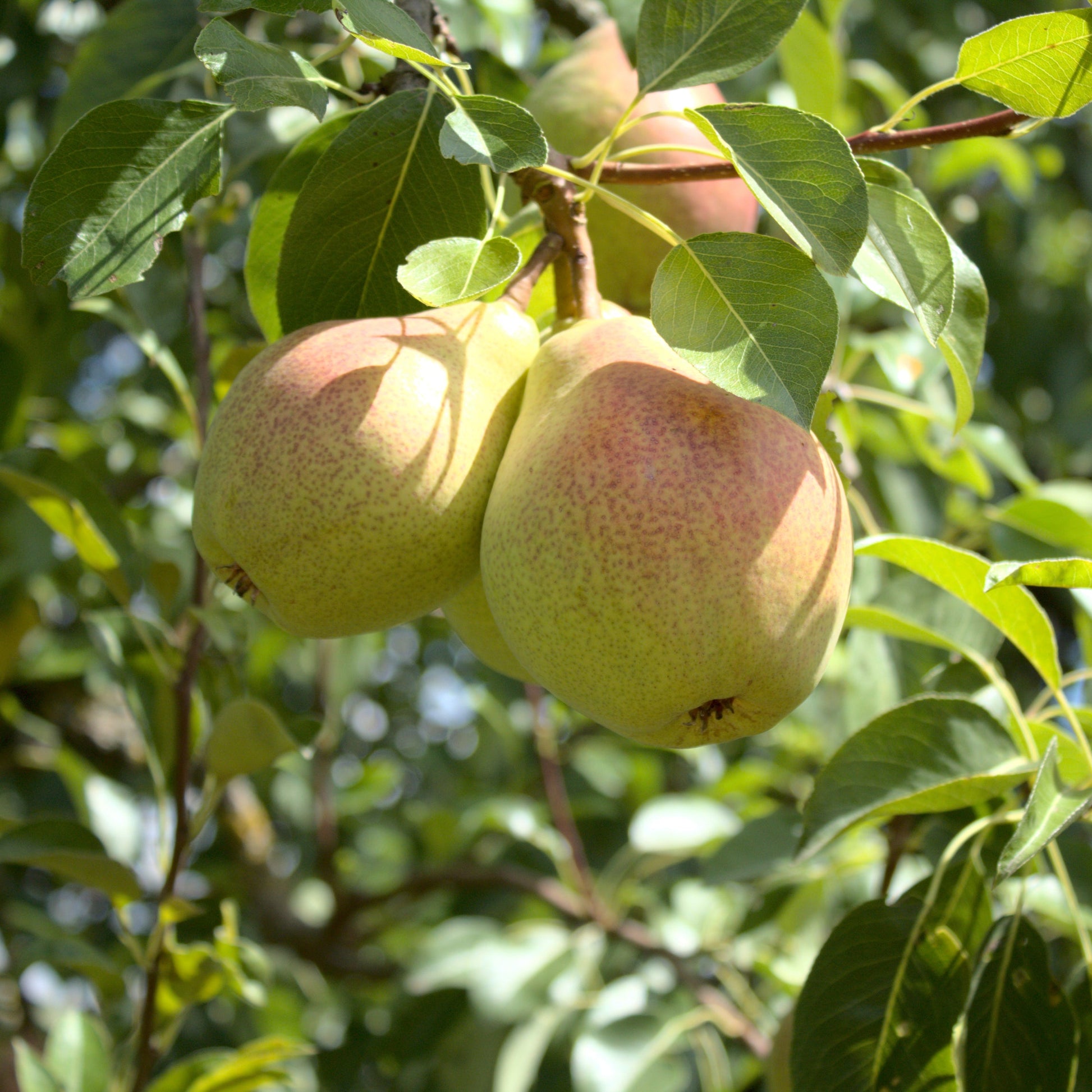Limited Quantities - Reserve Now For Fall
Kieffer Pear Tree
Kieffer Pear Tree
Couldn't load pickup availability
Pyrus × ‘Kieffer’
Kieffer Pear Tree
The Kieffer Pear Tree is a vigorous, late-ripening hybrid pear known for its crisp texture, long shelf life, and incredible resilience. A cross between Bartlett and a native sand pear, this tree offers the best of both worlds—flavor and durability—making it a top choice for home orchards, southern climates, and low-maintenance edible landscapes.
Perfect for preserves, canning, baking, and fresh eating when softened, Kieffer Pears are incredibly productive, even in heat, humidity, or less-than-perfect soils.
Kieffer Pear Tree Overview
| Attribute | Details |
|---|---|
| 🌿 Botanical Name | Pyrus × ‘Kieffer’ |
| 🏷️ Common Names | Kieffer Pear, Kieffer Hybrid Pear |
| 🌳 Mature Height | 15–25 feet (standard); 12–15 feet (semi-dwarf) |
| 🌐 Mature Width | 12–20 feet |
| 📈 Growth Rate | Moderate to fast (1.5–2.5 feet per year) |
| ⏳ Lifespan | 40–75 years |
| 🧊 USDA Zones | 4–9 |
| ☀️ Sun Preference | Full sun (required for optimal fruiting and flavor) |
| 🧱 Soil Type | Well-drained loam, clay, or sandy soils |
| ⚖️ Soil pH | Slightly acidic to neutral (6.0–7.0) |
| 💧 Water Needs | Moderate; drought-tolerant once established |
| 🍐 Fruit Type | Large, yellow-green pears with firm, crisp flesh |
| 🌸 Flower Color | White; blooms mid to late spring |
| 🐝 Pollination | Self-pollinating; better yield with another pear nearby |
| 🌿 Growth Habit | Upright, oval to rounded canopy |
| ↔️ Spacing | 15–20 ft apart for standard trees; 12–15 ft for semi-dwarf |
| 🏡 Landscape Uses | Edible gardens, home orchards, wildlife hedgerows, dual-purpose shade |
| 🧹 Maintenance Level | Low to moderate |
Environmental Benefits
🌸 Provides early spring blooms for pollinators and beneficial insects
🍐 Supports local food production and backyard self-reliance
🌿 Offers dense shade and edible productivity in one tree
🪶 Attracts wildlife with fallen fruit and seasonal structure
Pros & Cons
| ✅ Pros | ⚠️ Cons |
|---|---|
| 🍐 Highly productive and reliable in southern climates | 🐝 Benefits from cross-pollination for maximum fruit yield |
| 🌿 Disease-resistant and low-maintenance | 🍏 Fruit may be gritty when eaten fresh off the tree |
| 🏡 Excellent for preserving, canning, and pies | ✂️ Needs pruning to manage height and shape |
| 🌞 Thrives in heat and humidity | 💧 Regular watering needed during fruit development in dry spells |
| 🧬 Long-lived and strong in varied soil types | ❄️ Later ripening; fruit may need post-harvest ripening indoors |
Planting & Care Guide
🛁 Water thoroughly before and after planting; maintain even soil moisture
🕳️ Dig a hole twice the width of the root zone; plant with graft union 2 inches above soil line
🌾 Apply 2–3 inches of mulch around the base to regulate soil temperature and suppress weeds
💦 Water weekly during the first growing season; increase during fruit set
✂️ Prune in winter to improve airflow, remove suckers, and shape canopy
🧪 Fertilize each spring with a balanced fruit tree formula or compost-enriched soil
The Kieffer Pear Tree is a hardy, productive orchard staple that delivers dependable yields, culinary versatility, and low-maintenance resilience. Whether you're planting for pies, preserves, or pollinators, this southern classic brings function and flavor to every edible landscape.
Share




